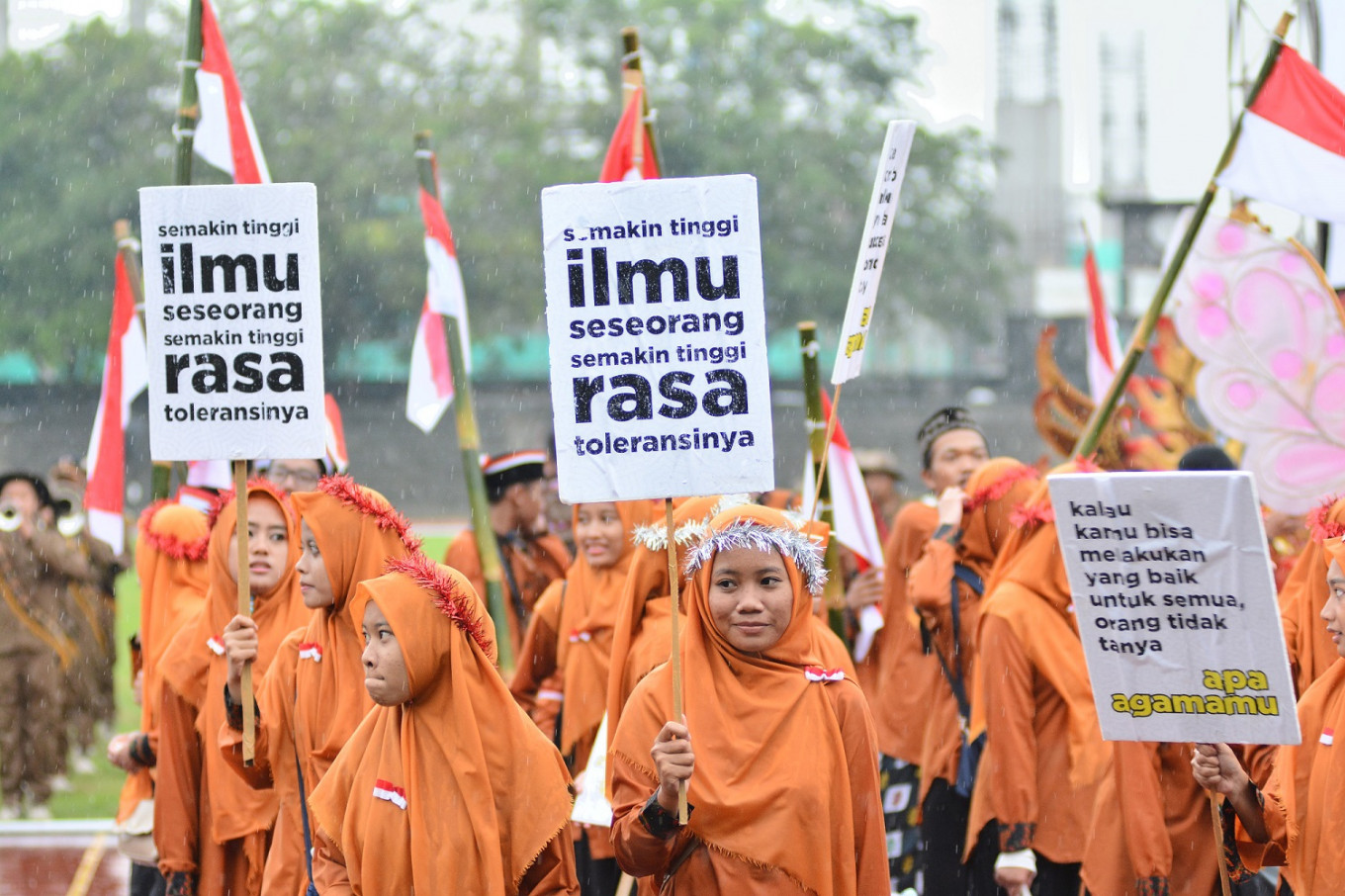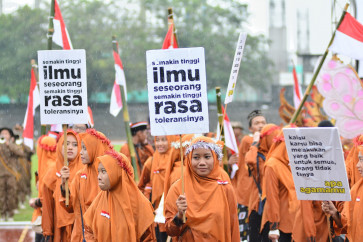Popular Reads
Top Results
Can't find what you're looking for?
View all search resultsPopular Reads
Top Results
Can't find what you're looking for?
View all search resultsReviewing ‘kafir’ to end intolerance, inequality
Change text size
Gift Premium Articles
to Anyone
I
n the previous months, we have been shocked by intolerant actions against two Indonesian Christians — including a deceased elderly woman. In mid-February, villagers in Mojokerto regency, East Java, opposed the burial of Nunuk Suwartini, 68, in Ngares village because of her religion. The most recent case saw a Christian artist, Slamet Jumiarto, 42, expelled from another predominantly Muslim neighborhood in Bantul in Java’s heartland, Yogyakarta.
As a Muslim by birth, who was raised in Islamic education systems from pre-elementary school to the postgraduate level, I can surely say that while these cases are shocking, they are the extreme logical consequences of what all Muslims have been taught regarding all non-Muslims, referred to as kafir or infidels.
While we are indoctrinated to believe that there is no salvation outside Islam, likewise we are taught that non-Muslims are different from us and also aim to put Muslims worldwide in misery. Their appearance as upstanding individuals, we are taught, masks their actual desire to conquer Islam and Muslims. Such teachings, also found in other faiths, must be immediately revised to reduce intolerance.
I can identify three categories for how Indonesian Muslims perceive their non-Muslims fellow citizens. The first is kafir-kafir, the lowest category, in which all non-Muslims are considered kafir from a theological perspective as well as at the nation-state level. Its followers believe that non-Muslims should not be allowed to be part of the state apparatus let alone become high-ranking public officials.
They shamelessly and aggressively campaign for this position, which conveniently feeds certain political interests. A 2016 survey by the Wahid Foundation showed that almost 60 percent of 1,520 respondents from 34 provinces abhorred people with certain identities, including non-Muslims.
Concerning this group, more than 92 percent of respondents said they should not be employed in state bodies, with more than 82 percent opposed to living in the same neighborhood.
The second term for non-Muslims is kafir muwathinun (citizen), which refers to non-Muslim citizens. In a historic decision at a recent national conference, Indonesia’s largest Islamic organization Nahdlatul Ulama (NU) agreed to use this term. Pre-election sectarian tensions contributed to this decision.


















